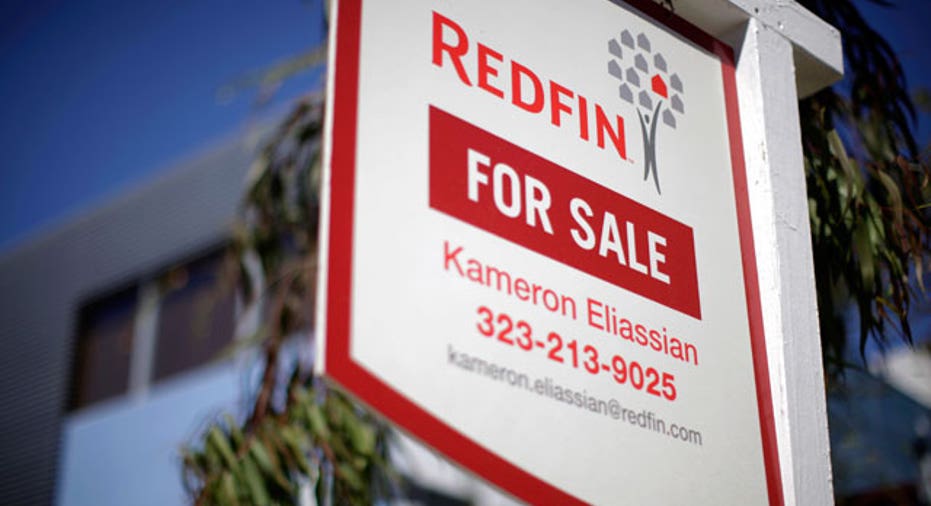Mortgage Rates Arrest 8-Week Drop

Mortgage rates inched up this week after they had dropped for eight consecutive weeks and reached their lowest levels in decades. That's not what the Fed expected, but for now the eurozone, not the Fed, is calling the shots in the mortgage world.
The benchmark 30-year fixed-rate mortgage rose 1 basis point this week, to 4.3%, according to the Bankrate.com national survey of large lenders. A basis point is one-hundredth of 1 percentage point. The mortgages in this week's survey had an average total of 0.37 discount and origination points. One year ago, the mortgage index was 4.5%; four weeks ago, it was 4.37%.
The benchmark 15-year fixed-rate mortgage rose 5 basis points, to 3.47%. The benchmark 5/1 adjustable-rate mortgage rose 8 basis points, to 3.13%.
Despite the recent increases, mortgage rates are expected to remain near record lows at least through the end of the year, some mortgage experts say.
Why did Rates Increase?
Mortgage rates adjusted back to where they were before the Federal Open Market Committee met last week, says Brett Sinnott, director of secondary marketing at CMG Mortgage in San Ramon, Calif. The Fed announced it will sell $400 billion of short-term securities and reinvest the money in long-term securities to drive down long-term interest rates. It also announced it would reinvest money in mortgage-backed securities. Rates tumbled as investors "overreacted" to the Fed announcement by pulling out of the stock market and buying Treasury and mortgage bonds.
"It's crazy. Last week we had a big rate decrease, but we have pretty much given it all back," says John Walsh, president of Total Mortgage Services in Milford, Conn. "For a day or so, we were doing 30-year fixed (loans) with no points at 3.75"%.
Bankrate's survey doesn't reflect as big of a jump in mortgage rates this week because the data for last week's survey were gathered before the Fed's announcement.
Many borrowers took advantage of the low rates. The volume of mortgage applications surged 9.3% last week compared to the previous week, says the Mortgage Bankers Association.
The Federal Reserve's plan, known as Operation Twist, is supposed to help keep long-term interest rates down, but others factors in the global economy and beyond the Fed's control also play a big role in the mortgage world.
Operation Twist is just one factor influencing mortgage rates, and it is not the most important at present, says Nigel Gault, chief U.S. economist at IHS Global Insight.
Optimism Rises in The Eurozone
The main driver behind mortgage rates this week is the hope that European leaders will approve a multibillion-dollar rescue fund to help the debt-strapped nations in the region.
For months, the debt crisis in the 17-nation eurozone has helped keep mortgage rates low in the United States as concerned investors sought safety in U.S. bonds.
"This week, markets have become more optimistic about the prospects of a resolution to the eurozone crisis, so as a result long-term interest rates have risen," Gault says. "The less panicked the markets are, the less they feel the need to pile into safe assets like U.S. Treasuries. In turn, higher Treasury yields push up mortgage rates."
The G-20, which is comprised of leaders from the world's biggest economies, pledged to take any necessary steps to prevent the collapse of the global economic system. Speculation that the G-20 would act to prevent Europe's crisis from spreading helped calm investors.
Also this week, Greece, which has been on the verge of default, signaled it may be close to securing a second bailout to get its soaring debt under control.
"Rates are rising on progress for Greece," says Dan Green, a loan officer with Waterstone Mortgage in Cincinnati. "It's the reverse of safe-haven buying. As Greece gets closer to securing a bailout, mortgage rates will rise."
But investors may soon realize that the short-term solutions European leaders are using to calm the markets won't be sufficient to contain the crisis, Sinnott says. "It may look good on paper, but will it work?" he says.
Michael Becker of WCS Funding Group in Lutherville, Md., also questions Europe's ability to get its debt woes under control. "I am highly skeptical as every other plan that has been conceived has in the end disappointed."
Should You Lock or Wait?
Despite the recent adjustment in rates, many mortgage experts don't expect the upward trend to last.
"That being said, you never know what's going to happen tomorrow," says Walsh. "I've seen rates go up 0.5% in one day and never go back."
The recent spike should serve as a message to borrowers that they should quit looking for the bottom and take advantage of the low rates while they can, says Steven A. Milner, founder and CEO of US Mortgage Corporation in Bohemia, N.Y.
"In my experience, when rates go up people get off the fence because they are fearful rates will climb," he says. "You can't pick the top or bottom. Make a decision, don't look back and move on."



















